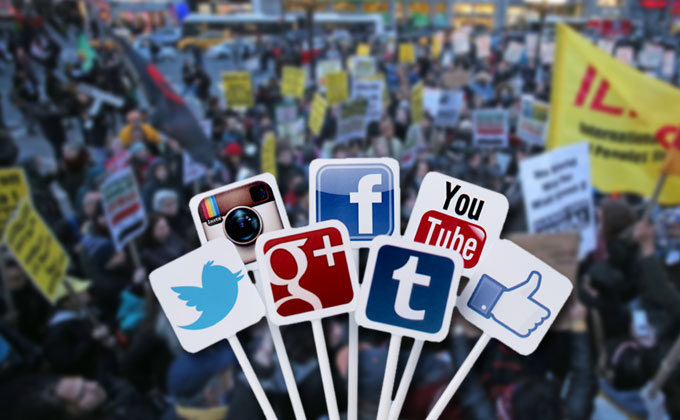The Power Play: Breaking Down Social Media’s Influence on Politics

In the digital age, social media platforms have emerged as influential players in shaping political landscapes worldwide. The ability to disseminate information rapidly, mobilise supporters, and engage in political discourse has transformed the dynamics of modern politics. In this blog post, we will delve into the multifaceted influence of social media on politics, exploring its profound impact on information dissemination, political engagement, targeted advertising, and the challenges posed by viral spread and misinformation. By understanding the intricacies of social media’s influence, we can better navigate its effects on the political sphere.
- Information Dissemination: The New Age of Political Communication:
Social media platforms have revolutionised the way political information is shared, allowing users to access news and opinions with unprecedented speed. From breaking news to policy announcements, social media has become a primary source of information for many people. However, the ease of sharing also raises concerns about the accuracy, reliability, and verifiability of the content shared, calling for media literacy and critical thinking skills.
- Political Engagement: Empowering the Digital Citizenry
The rise of social media has empowered individuals to participate in political processes like never before. Users can voice their opinions, support causes and connect with like-minded individuals, creating new avenues for political engagement. From online petitions to social media campaigns, citizens have found a platform to raise their concerns and rally for change. Moreover, social media has also enabled politicians and political organizations to mobilise supporters, fundraise, and organize events with remarkable efficiency.

- Targeted Advertising: Reaching the Right Audience
Social media platforms offer a powerful tool for political campaigns: targeted advertising. With access to vast amounts of user data, campaigns can tailor their messages to specific demographics and individuals. This level of personalization allows politicians to craft messages that resonate with their target audience, potentially swaying public opinion and maximising voter engagement. However, concerns persist regarding the ethics of micro-targeting, as it may create filter bubbles and echo chambers, exacerbating political polarisation.
- Viral Spread and Misinformation: Navigating the Information Maze
The virality of social media can rapidly amplify political content, both accurate and misleading. The ease with which misinformation spreads poses significant challenges for the political landscape. False narratives, disinformation campaigns, and deep-fake videos can manipulate public opinion and undermine trust in institutions. Combating the spread of misinformation requires collaborative efforts from platforms, users, and fact-checking organizations to ensure an informed citizenry and maintain the integrity of democratic processes.
Social media’s influence on politics cannot be overstated. It has revolutionised information dissemination, empowered political engagement, enabled targeted advertising, and posed challenges in combating misinformation. As society continues to grapple with the impact of social media, it is crucial to strike a balance between leveraging its potential for positive change and mitigating the risks it poses. By recognising the opportunities and challenges inherent in social media’s influence on politics, we can navigate this evolving landscape with informed perspectives and actively shape its future impact.